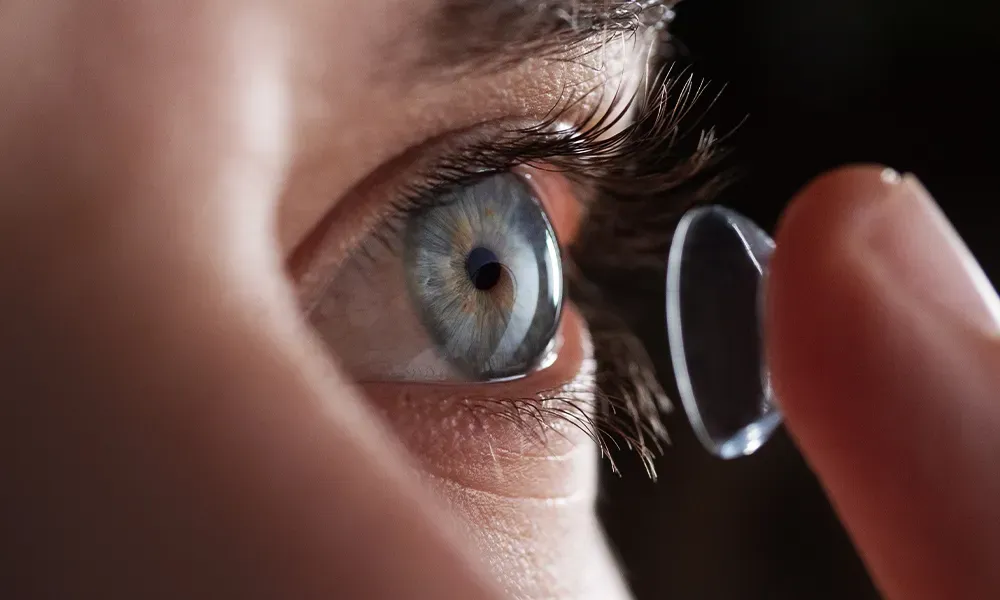
The Complete Guide to Choosing the Right Specialty Contact Lenses
Choosing the correct type of contact lenses can be overwhelming, especially with the wide variety of options available today. For those who need more than standard lenses, specialty contacts offer a solution tailored to specific vision requirements. Whether managing a unique eye condition or seeking better comfort, understanding the different types of specialty lenses is crucial to making the right choice.
When considering specialty contact lenses, it’s essential to understand they go beyond standard vision correction. They improve clarity and address specific eye health concerns for individuals with complex vision needs. This guide will help you explore everything you need to know about these lenses, enabling you to make an informed decision for your eye care.
What Makes Advanced Contact Lenses Different
Corrective contact lenses address vision issues that regular lenses cannot solve. They are often recommended for people suffering from keratoconus, astigmatism, dry eye, or presbyopia.
These lenses are made from advanced materials that offer improved comfort and performance, especially for individuals with specific eye conditions. They help improve visual clarity and overall comfort by providing a more customized fit, making them an essential option for those with complex needs.
Different Types of Specialty Lenses to Consider
Several types of personalized contact lenses are crafted for different purposes. Some of the most common types include:
- Rigid Gas Permeable Lenses: These lenses are often recommended for people with keratoconus or irregular corneas. They maintain their shape on the eye, providing sharp vision and long-lasting comfort.
- Scleral Lenses: These larger lenses rest on the white part of the eye, creating a smooth surface for those with irregular corneas. They can help reduce dryness and discomfort for people with severe dry eye conditions.
- Hybrid Lenses: Hybrid lenses provide the comfort of soft lenses and the clarity of rigid lenses while being ideal for individuals with astigmatism or those needing enhanced vision quality.
- Toric Lenses: Explicitly designed for those with astigmatism, toric lenses are shaped to match the curve of the eye, providing clear vision by compensating for the uneven shape of the cornea.
Key Considerations for Choosing Specialty Lenses
Selecting the right lenses goes beyond just vision correction. When deciding on specialty contacts, it’s essential to consider factors such as:
- Eye Health and Condition: The primary reason for choosing specialty lenses is to address specific eye conditions, so understanding the nature of the condition is essential in selecting the correct lenses.
- Comfort: Comfort plays a significant role in wearing contacts regularly. Some specialty lenses, like scleral lenses, offer more comfort for people with chronic dry or sensitive eyes.
- Lifestyle Needs: If you’re active or spend much time in different environments, your lenses must offer durability and performance in various conditions.
- Fit and Customization: Proper fitting is crucial since specialty lenses are designed to meet unique eye shapes or conditions. Lenses that are tailored to fit correctly will provide better vision and comfort.
Caring for Your Therapeutic Contact Lenses
Proper care and maintenance of specialty lenses are critical to ensure their longevity and keep your eyes healthy. These lenses may require specific cleaning solutions or storage methods for proper care.
Regular cleaning is essential to remove debris, prevent infections, and maintain optimal performance. Always follow the care instructions your eye care professional provides to avoid complications.

Finding the Right Expert for Contact Lenses
For those seeking vision-specific lenses, consulting an experienced provider is crucial. Optometrists specializing in these lenses can determine the best fit for individual conditions, ensuring comfort and clarity. Working with a professional who understands the nuances of eye health is key to making an informed and confident decision.
Specialty contact lenses provide a customized solution for unique vision needs. Vision-specific clarity and comfort are needed to manage conditions like keratoconus, astigmatism, or dry eye. You can find the offers by considering eye health, comfort, and lifestyle. Therapeutic contact lenses may be ideal if you’re ready to address your eye care needs.
